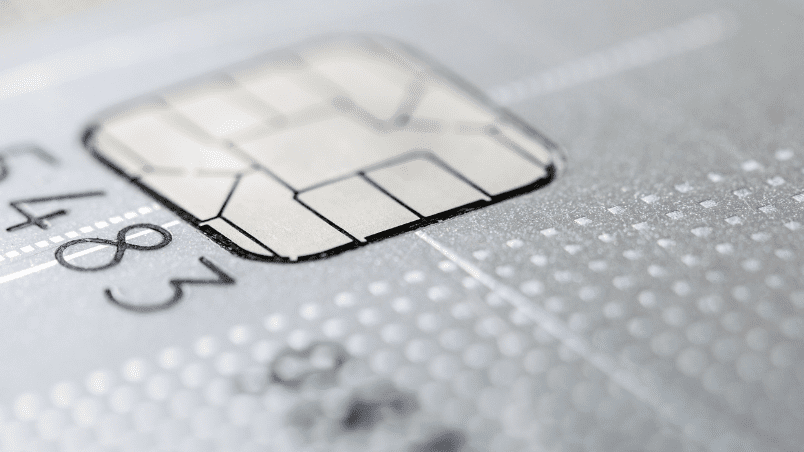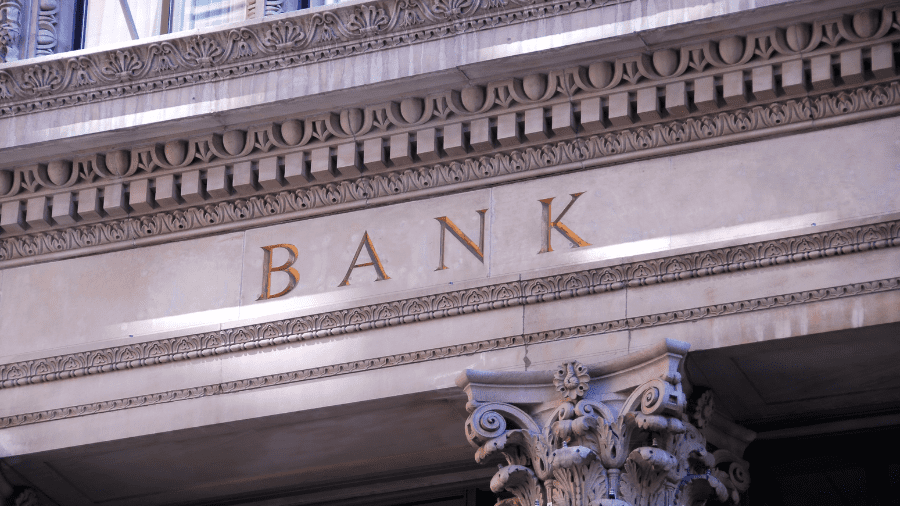Easiest EU Bank Account to Open and Manage
March 21, 2025
With the world becoming more unpredictable, having assets in more than one country is not only legal but also a reasonable measure to protect your hard-earned cash via higher interest rates and currency diversification.
However, the EU has stringent AML (anti-money laundering) and KYC (know your customer) rules for banking, so don’t expect EU countries to be the “easiest” places to bank offshore.
We’ve helped many of our clients open bank accounts in numerous European countries and avoid plenty of others. We understand the challenges, processes and opportunities firsthand. Before we get started, though, let’s get one thing straight: ‘Everything is easy, and nothing is easy’. How you define ‘easy’ will define whether you should open your offshore account in Europe or somewhere else.
Challenges of EU Banking for Non-Residents

While most EU bank accounts provide you with a stable and secure banking system, there are a few things you should know about.
EU Bank Accounts Require A Lot of Paperwork
Europe loves its paperwork.
While some of the countries at the fringe are more efficient in opening bank accounts, the name-brand countries will demand 40-page application forms, apostilles, notarised copies of every passport and sometimes years of business P&Ls or investment history. It’s up to you to decide whether private banking in countries like Switzerland or Liechtenstein is worth it.
Higher EU Bank Account Fees
While banks in emerging countries have low or even zero fees, private banks and priority banks in Europe have higher fees than their Asian counterparts.
In our opinion, this has little to do with service and everything to do with the higher operating costs and regulatory burdens in the EU.
EU Bank Accounts Have Strict Requirements
Banking in Europe often requires some kind of residential or investment connection to a country, like a residence permit, citizenship or property ownership.
As you’ll discover in this article, those things aren’t bad to have as additional diversification tools, and in countries like Turkey, you can even get citizenship for making a bank deposit.
But for pure banking needs, prepare to deposit six or seven figures if you don’t have a connection to the country. That’s with the exception of Eastern European countries.
Benefits of EU Banking for Non-Residents
Now that you know the challenges, let’s move to the benefits of opening and having an EU bank account for non-residents.
Unlock EU Residency and Citizenship
Having an EU bank account may not come with a ‘get residency free’ card, but it’s definitely a leg up in the game of gaining residency or citizenship in select EU countries.
For example, certain nations provide ‘golden visa’ programs whereby a substantial investment, often comprising a substantial deposit in a local bank, can lead to residency permits.
In some cases, this residency can then be converted into EU citizenship after fulfilling certain requirements.
However, it’s important to remember that the specific requirements for residency and citizenship vary significantly between countries.
It’s best to do your research and seek professional advice from experts like our team at Nomad Capitalist if you’re considering this path.
Great Asset Protection
EU countries generally have strong legal frameworks and regulations in place to safeguard depositors’ funds.
These include well-defined property rights, sophisticated banking systems and strict adherence to international standards.
Some EU countries also offer more mechanisms to protect your money, like trusts and foundations. These can give you even more security and privacy for your wealth.
Investment Opportunities and Higher Interest Rates
With an EU bank account, you have more opportunities to make more money.
You’ll gain access to a variety of investment products and services not readily available elsewhere, such as specialised funds, private banking services and investment options specifically designed for high-net-worth people.
On top of that, while interest rates vary across the EU, some countries, particularly in Eastern Europe, may offer higher rates on deposits compared to other regions.
4. Strong Deposit Insurance Schemes

Nobody wants to lose their money to some banking crisis in a far-off land. Thankfully, however, most direct EU countries have got you covered with their impressive deposit insurance schemes.
These schemes ensure that even if your bank decides to take an unexpected nosedive, your money is protected up to a certain amount.
Of course, the specifics of these schemes vary from country to country, so it’s always wise to do your homework and choose a bank with a deposit insurance scheme that aligns with your risk tolerance.
Best EU Countries to Open a Bank Account
Next, let’s explore the easiest and best places to bank in Europe for non-residents.
Portugal

As the first entrant on this list in the European Union, Portugal may be more attractive to those who don’t mind greater regulations in exchange for greater security.
In a nutshell, this translates to better adherence to European banking standards, including deposit insurance of up to €100,000.
While you may not be able to walk in off the street, some advanced planning with Portuguese banks can allow you to open an account. There are plenty of retail banks with four-figure minimums, as well as a few priority banks with six-figure minimums.
Like many European banks, many have asked us not to explicitly name them publicly.
The easiest way to bank in Portugal is to get a residence permit there, whether the country’s golden visa, which underwent significant changes in 2023 when the real estate investment route was removed or a less expensive self-sufficient residence.
Sometimes, you can get a bank account on the basis of considering obtaining residence, as in planning ahead for applying for immigration status.
Obviously, we would always suggest you be honest with the bank but if you say you’re exploring Portugal and deciding on whether to invest there, that can help.
Hungary
Like Portugal, Hungary allows you to open retail accounts for smaller depositors on a somewhat random basis. If you’re willing to fly to Budapest and can demonstrate some interest or connection to the country, they may be open to working with you.
Our advice is to never view banking in a foreign country as you would in your own: outside of places like the Caucasus, simply walking in and saying, ‘I want a bank account’ isn’t going to work for overly conservative bankers.
You either need to know someone or plan ahead with the bank before you travel.
Latvia
It’s been years since our company banked in Latvia, an ordeal that ended up with our priority bank playing games with us for the last four months before we hired a lawyer to fight tooth and nail to finally get our money back.
Latvia had gained a reputation as a money laundering destination for Russian funds. Consequently, banks in Latvia began pressuring their clients due to pressure from the Latvian central bank, which in turn was responding to pressure from the Federal Reserve.
That led to banks doing strict checks on every transaction in and out, which was less of an issue for someone merely using a Latvian bank to make investments rather than transactions.
If you do business in Eastern Europe or just want higher-level service and advanced private banking at a lower price than Switzerland, Latvia may be worth it.
Your banking relationship may also entitle you to a residence permit, which likely won’t lead to citizenship but allows you full-time access to the European Union.
Beyond the Easiest EU Bank Account Options

Many banks are coasting off of their legacies, which as we saw with Credit Suisse aren’t always what they’re cracked up to be.
Our clients are often happier banking in more transactional Singapore than they are in Switzerland, but if you insist on higher-level European banks, you have a few options.
Andorra
Andorra is a potentially accessible option for private banking in Europe. Minimum deposit requirements typically begin at €500,000, with some banks requiring more to establish a full-fledged banking relationship.
The account opening process is easier than we expected. We’ve found that Andorran banks are more flexible and willing to make house calls or even visit you elsewhere in Europe. For example, we met with an Andorran banker at their office in Barcelona.
Fees in Andorra will be higher and the small country – bordered by Spain and France – doesn’t have as clear of a deposit insurance scheme as other European countries.
Historically, the banks just bailed each other out if there was ever an issue to ensure the principality remained attractive. This old-school way of operating may be appealing or unappealing to you.
One of our biggest concerns with private banking in Europe – which is also the main offering that we’re less excited about – is how bankers claim to be able to handle your entire investment portfolio and global tax needs.
However, we haven’t found bankers to be knowledgeable about things like US SITUS assets.
For €1,000,000 and the reputation a place like Andorra demands, they should know better.
Switzerland
Swiss banks have become the brand name for private banking of the world’s affluent, attracting everyone from the Wolf of Wall Street to YouTubers like Noah Kagan to share their experiences there.
However, many Swiss banks are simply not interested in foreigners, and very few are interested in Americans. For example, Nomad Capitalist works with one Swiss bank that accepts US citizens, with a starting deposit of US$1 million.
Swiss banks have among the most complex onboarding processes. If you have an in-house finance team as we do, this is, of course, more easily managed, but they will still need to speak with the owner of the account and may demand plenty of documents.
Switzerland charges fees in line with the reputation it has earned, meaning you will likely have to pay a monthly fee to maintain the account, as well as fees on holding investments, trading stocks or holding currencies.
If it sounds like we’re opposed to Switzerland, we’re not. We just think anyone with less than US$5 million has better options.
Liechtenstein
This tiny Alpine nation may be one of the most convoluted places to bank and certainly has a high opinion of itself, but opening a bank account is doable.
Nomad Capitalist founder Andrew Henderson has talked about his experience, where his high-six-figure opening deposit was scoffed at as bankers told him, ‘Sometimes we’ll reply to you the same day, while other times we’ll take three weeks’.
If you expect to be served by an actual Liechtensteiner, good luck.
Embed<<<https://www.youtube.com/watch?v=EF_zbBq8aac>>>
There are one or two banks that will open accounts with starting deposits in the 300,000 to 500,000 Swiss franc range, but that won’t get a lot of attention.
You’ll also pay high fees for them to manage your money, as well as any negative interest rates on currencies like Swiss francs (usually with lower thresholds than banks in Singapore apply).
Based on our experience, the account opening process is more manageable compared to Switzerland. However, it still requires you to have comprehensive documentation of all your assets, categorised from properties you own to stocks.
Countries Near Europe to Open a Bank Account
The Caucasus (Georgia, Armenia, and Azerbaijan)
Though not in Europe itself, Georgia has an Eastern European feel and aspires to join the European Union. While nobody will claim Azerbaijan is part of Europe, it still wants to attract capital by making the country easier to work with.
And if your definition of ‘easy’ is a low deposit bank account in the Caucasus – the region east of Turkey and south of Russia – you can open an account with almost nothing.
Georgia has long been our favourite because the two largest banks – TBC and Bank of Georgia – don’t require you to be a resident to open an account. Most of the rest, especially the foreign banks, either focus on specific customers or only want residents or citizens.
Both TBC and Bank of Georgia open retail accounts to anyone who walks in, although you may want a local attorney to help you ensure the process goes smoothly before you fly out. Both banks are also traded on the London Stock Exchange.
US citizens will need to undergo FATCA checks, but almost everyone else can open a bank account in Georgia in as little as 30 minutes. If you want priority service, you can open an account with TBC Status or Bank of Georgia’s Solo program, which offers access to premium deposits and VIP lounges at airports on top of remote account creation for just 11 euros per month.
We even offer a service that helps clients open a bank account in Georgia remotely via a power of attorney. While it’s often better logistically and emotionally to visit your new bank in person, this can be a good alternative for anyone looking to get started from home.
Armenian banks have become more difficult to open and manage, generally requiring you to hold a residence permit.
If you have Armenian descent, you are entitled to Armenian citizenship, which may fulfil that requirement and give you a backup passport; if not, you can start a company, hire one employee, buy real estate, or invest in bonds as a way to get residence and therefore open a bank account.
The benefit of Armenia is higher deposit insurance; while Georgian banks have about US$6,000 in government coverage, Armenia’s is several times larger and protects a mid-five figure sum depending on which currency you bank in.
Armenian banks still pay decent interest rates on currencies like the US dollar, as well as excellent rates on their own Armenian dram which perfectly quite well against the dollar in recent years.
Azerbaijan has always had the worst reputation among the three countries, partially because it’s easier to bank there. Most of the region’s hot money went through Azerbaijan, with Georgia and Armenia passing on more risky clients in recent years.
Our founder went to Azerbaijan and found the process stupidly simple, although English isn’t widely spoken. That said, Azerbaijan is the wealthiest of the three countries.
Balkans (Serbia, Montenegro, Albania)
While the Balkans were once considered a haven for easy offshore banking, increased scrutiny and KYC/AML requirements have added some hurdles. Nevertheless, opportunities remain for those who understand the current landscape.
As is the case with many things in this region formerly called Yugoslavia, who you know matters.
You will see more regional and pan-European banks in the Balkans, which may be more assuring to some new offshore banking clients since Caucasian banks are mostly local only.
Serbia is the largest of the Western Balkan countries, and banks like Raiffeisen or OTP allow non-residents to open accounts as long as they provide proof of their physical residence elsewhere.
Some city centre branches of these banks may have dedicated people who speak English and maintain accounts for foreigners. Keep in mind that interest rates in Serbia are generally low, but the country has a tried-and-true €50,000 deposit insurance plan.
Montenegro is more touristy, with a beautiful coastline just south of Croatia. Opening a bank account here used to be easier, but most larger banks don’t want foreigners now.
As in some other European countries, you can bypass these issues by obtaining a residence permit, which requires you to buy basically any property or start a company and pay yourself a monthly pittance. We help our clients obtain residence in Montenegro and elsewhere.
One hack for banking in Montenegro could be walking into a smaller bank in a tourist centre like Porto Montenegro. Nomad Capitalist CEO’s first account was opened in Budva, which may also be possible. Try smaller banks where foreigners hang out.
Albania and North Macedonia are perhaps easier and they claim to be explicitly open to foreigners, but you’ll still want a reason for having the account.
“I don’t trust banks in the United States” probably won’t sit well with a banker who thinks their country is troubled and sees the West as some panacea.
Even if they’re wrong, they may not open your account.
EU Bank Account Countries We Rarely Recommend
There are plenty of countries we don’t recommend banking in unless you have a specific reason to, such as owning a home or having a corporation as part of your business structure.
Owning property or being a resident is often a reason a bank may give you an account. That not only makes having residence permits or citizenships appealing to expand your financial options, but it also doesn’t mean that the bank won’t still demand plenty of paperwork.
For example, if your offshore business includes a German company for collecting payments from German customers, you would, of course, need a German bank account… as well as a tax plan to ensure you don’t pay more than you need to.
One country we avoid is Monaco. If you’re planning on relocating to Monaco, you will need a bank account there to deposit the €500,000 needed to establish residence. The government basically relies on the banks to conduct much of the due diligence for them, so bank account opening is a pain.
If you’ve lived anywhere exotic (for example, you’ve been tax resident in the Cayman Islands), banks in Monaco likely won’t touch you, meaning you can’t move there.
It’s a literal catch-22, so our advice is those interested in Monaco move directly from the US, Canada or another western European country. Don’t plan on banking in Monaco for kicks, and even if you want to live there, the process will be involved.
Most countries not known for banking – from Norway to Germany to Spain – won’t onboard non-residents unless you have a good reason. Again, it’s easy enough to obtain residence permits in some countries to unlock new banking options and immigration privileges at the same time which creates a greater Plan B, but there are always caveats.
For example, becoming a resident of Spain isn’t hard through the country’s golden visa program which creates two residential ties – real estate ownership and immigration status – but spending too much time in Spain could subject you to Spain’s notoriously crazy tax system.
Easiest EU Bank Accounts: FAQs
Only partially.
Many European banks now have online application processes, but they tend to be old-school and still require an in-person visit to a branch for document submission or identity verification. Of course, that may necessitate you to travel to the chosen country.
If you prefer to complete the entire process online, your best option might be a digital bank that operates across Europe.
This varies depending on the country and the bank. Generally, you’ll need:
Proof of identity
Proof of address
Proof of income or funds
Visa or residence permit (If you’re not an EU citizen).
Germany, the Netherlands and France have long been touted as the best country because most of their banking options are secure and truly comprehensive.
Yes, it’s possible to open an EU bank account in select countries as a non-resident, but it can be more challenging. You may need to submit a bit more documentation or meet certain requirements, such as a higher minimum deposit.
Generally, banks in countries near Europe, like Georgia and Armenia, are known for being relatively easy to open, even for non-residents. Within the EU, Portugal and Hungary can be good options if you plan.
Most EU banks have online banking services and/or apps. However, the features and user-friendliness of online banking platforms can vary between banks. We would highly recommend that you check out the reviews and support in terms of customer service. The last thing you want while you are halfway around the world is to struggle with these things.
Should You Open an EU Bank Account in Europe?
As you can see, not only is opening an offshore account not easy per se but the requirements to do so are often connected to other issues.
After working with 1,500+ high-net-worth clients, we’ve realised that most of them don’t just want a bank account; they want a solution for asset protection and diversification that goes beyond one account.
If you’re just starting out, consider a small bank account in a country like Georgia that will be easy enough to open and not require much ongoing maintenance. We have a trusted attorney that handles these account openings remotely or in-person for a reasonable fee.
We’re not suggesting to move your entire fortune to a Georgian bank, but it’s a good way to get started. If you want to go more all-in, or your definition of a small deposit is much more substantial, you may want help opening a bank account.
One advantage of some European private banks is they’re more open to accounts for offshore trusts in places like the Cook Islands, as well as European foundations that are more appealing to European citizens.
If your goal is asset protection and you’re depositing enough to entice a Swiss banker, chances are you should be considering the tax consequences, compliance requirements, and legal structuring of your offshore assets more than just saying “I want a bank account”. Once you’re into the six, seven, or eight figures, it’s worth consulting an expert.
Nomad Capitalist assists such clients in evaluating their holistic needs and wants and creating a bespoke Plan complete with a variety of banking options in Europe as well as worldwide, company and trust formation advice, and overall tax and asset protection.
You can learn more about our service here.


The Best Countries for Investing in the Middle East 2025
The global investment landscape has changed dramatically. Gone are the days when opportunities were limited by geography or confined to traditional stocks and bonds sold only through standardised, rigid and often cumbersome channels. Back then, going ‘global’ might have just meant adding a few European equities to a US-based portfolio. Today, everything has changed. Barriers […]
Read more

Best Gulf Country for Company Formation and Business Setup
For ambitious entrepreneurs, the Gulf region offers a powerful blend of top-tier banking systems and business-friendly laws that streamline company formation and make the process remarkably efficient. Countries like Bahrain, Kuwait, Oman, Qatar, Saudi Arabia and the United Arab Emirates (UAE) are actively competing to attract the world’s brightest business minds – and it’s working. […]
Read more

Top Offshore Tax Havens in the Caribbean
When people hear the term ‘tax haven’, it often conjures up images of shadowy offshore bank accounts and shady financial dealings. The reality is far more practical and much less sinister. Caribbean tax havens aren’t just for billionaires or corporations with armies of lawyers. In fact, many everyday entrepreneurs and investors take advantage of the […]
Read more




